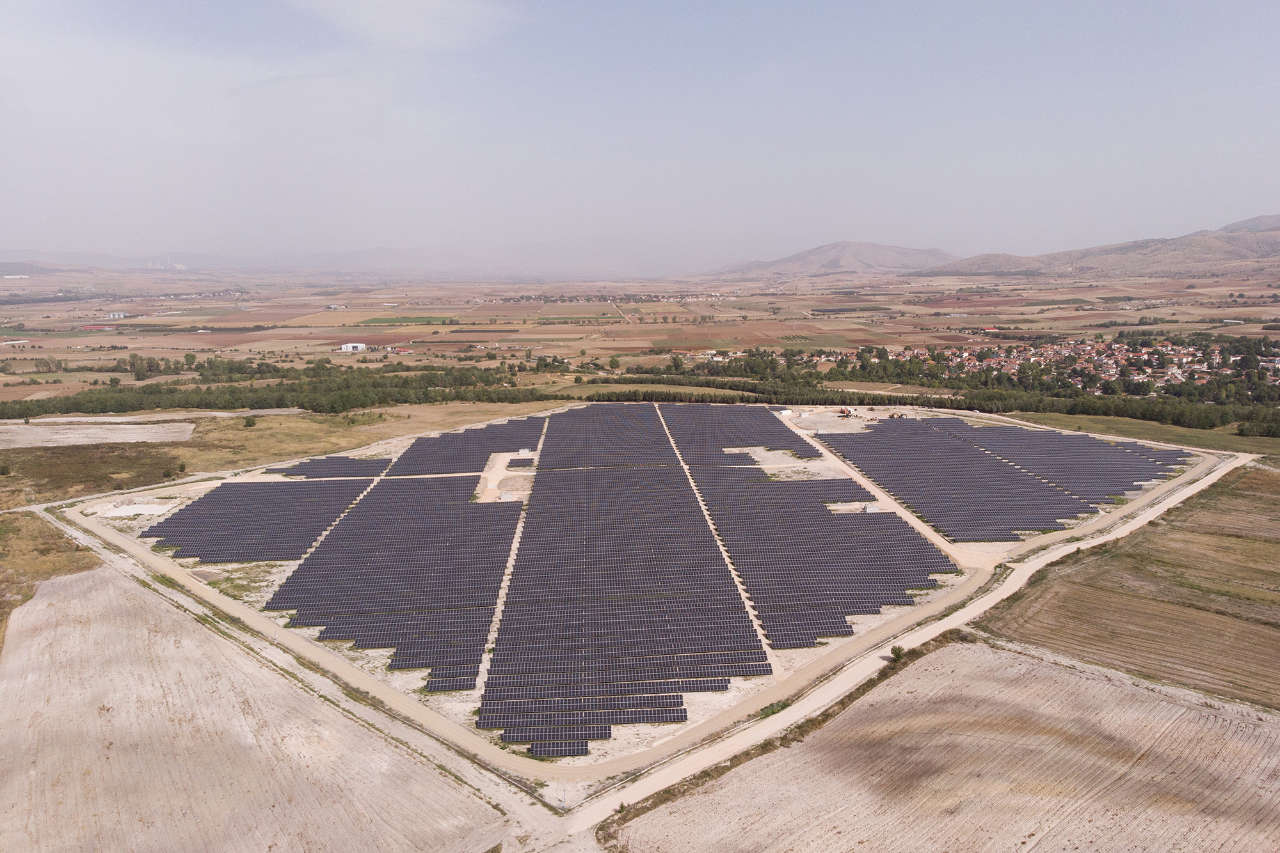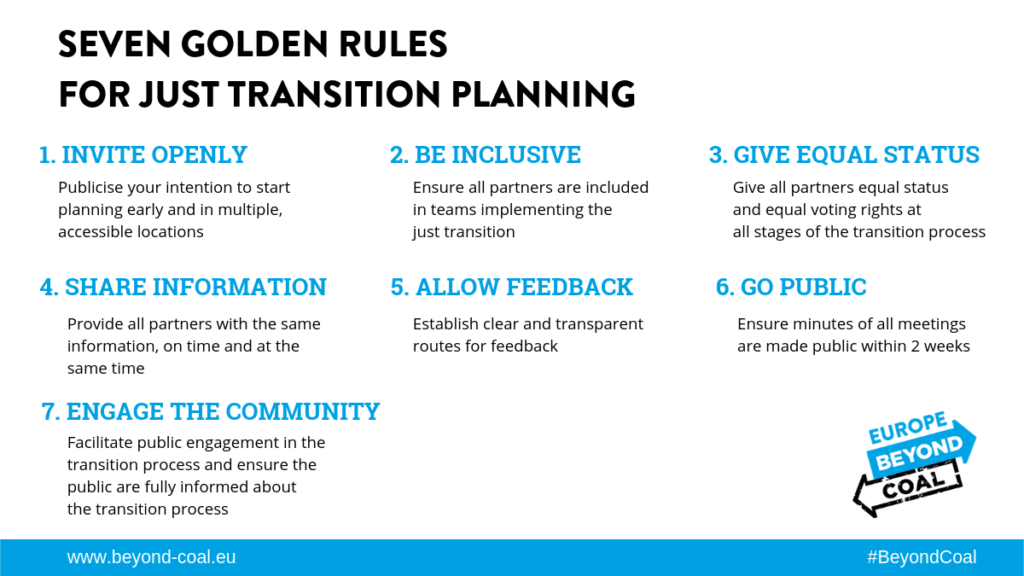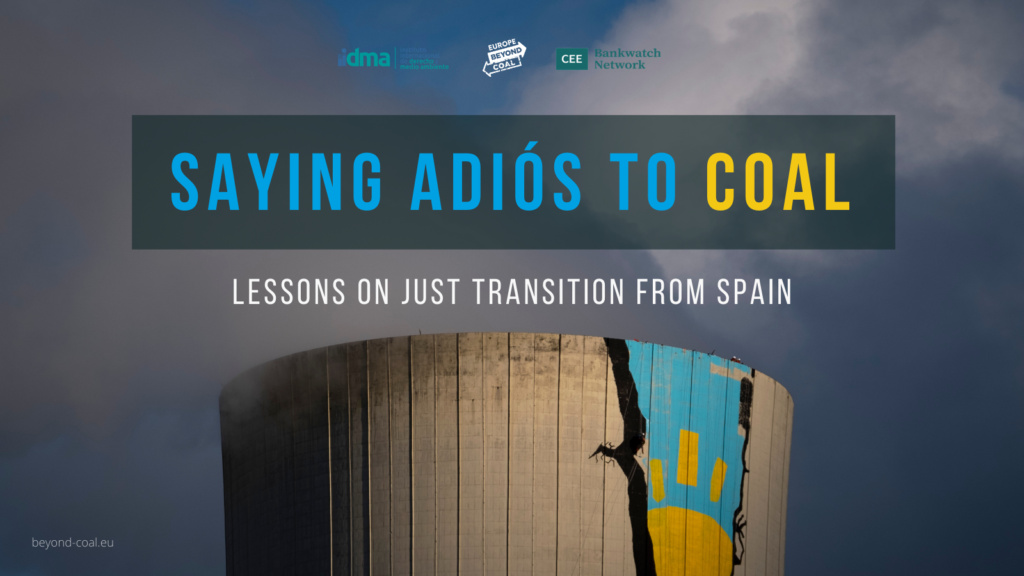Re Energising society
Re-energising society is vital, especially after the multiple crises the world is facing. Russia’s invasion of Ukraine and the energy crisis it exacerbated has exposed huge risks: entrusting energy supplies to profiteering fossil fuel companies and aggressive regimes. Thankfully, we have the technologies to end these dependencies. This means transition to permanently affordable clean energy generation close to home.
Every politician, business, financial institution and energy company has a responsibility. To put plans in place to massively expand home-grown renewable energy, and make a fully fossil-free European economy a reality. This will liberate us from the clutches of fossil fuel companies and despots. It will also provide certainty for business and investors, good green jobs for workers, and energy supplies that are reliable, affordable, and climate safe.
 Clean energy
Clean energy
Countless places around us can host renewable energy technologies like solar and wind. These include rooftops, car parks, and former industrial sites. By properly insulating buildings and installing heat pumps, we can stop burning fossil fuels for heat and reduce energy bills. To make these changes, we need new sources of finance, updated regulations, and better policies supporting an energy transition that benefits everyone.
Unfortunately, in many European countries, administrative, political, and economic barriers hinder progress. We need to pressure our leaders to make brave decisions recognising the need for a rapid phase-out of fossil fuels. At the same time, it’s important to deliver the massive investments in renewable energy that 87% of Europeans want.
 The role of business
The role of business
Energy shortages and price spikes are kryptonite for businesses. Particularly, those in high energy consumption sectors such as metallurgy, ceramic and glass, food processing, or pulp and paper products. In an increasingly fractured world with more frequent and unpredictable weather events, businesses need stable and affordable energy sources. Many can boost their resilience to crises by deploying renewable energy technologies on their own sites. Additionally, business leaders should be calling on governments to increase green investments. This way, key energy distribution networks are more robust, flexible, and not based on just-in-time supply chains, exposed to volatile markets.
 High-carbon regions
High-carbon regions
Europe needs to rapidly move beyond fossil fuels in a way that is well-managed and fair to those who work in the high-carbon industries that inevitably wind down. Energy companies are key to this process, as their decisions affect the plans of workers, communities and governments.
By shifting business models away from fossil fuels and into renewables, energy companies not only give themselves the best chance of remaining profitable, they also help deliver the massive deployment of renewables we need, and new jobs for workers to move to. People living in regions that host these industries actually stand to benefit the most from the transition to a renewables-based economy, not just with better job prospects and, often, financial support in the form of EU funds, but also far improved health outcomes through cleaner air and water.
Many communities, such as Konin in Eastern Greater Poland are already looking to seize these benefits – pressing ahead with the closure of their fossil fuel industries and cleaning up their economies.
 Just Transition
Just Transition
Regions that host high-carbon industries have a very specific set of opportunities and challenges in respect to the energy transition. Many supportive projects need to be delivered and the process for drawing them up needs to be participatory and transparent with local communities at the centre.
The EU has established a EUR 19.2 billion Just Transition Fund to support these processes. This money is for providing skills training and job search assistance, rehabilitating industrial sites and transforming carbon-intensive facilities. It should only be granted where there is a commitment to exit coal by 2030 at the latest, and must not be invested in polluting industries like gas that are a drag on our economies and climate action.
The EU also created the Just Transition Platform, building on the existing Initiative for Coal Regions in Transition. This provides a space where regional leaders can meet with industry specialists and EU bodies to share concerns, exchange knowledge, and develop plans. For countries outside of the EU, there is the Initiative for coal regions in transition in the Western Balkans and Ukraine. Both offer technical assistance in the development of just transition plans.
Read more on our partner sites: Bankwatch Network – Just Transition & Just Transition
 Coal mining
Coal mining
Coal mining is bad news for people, nature, and the climate. Mines release methane which has more than 80 times the warming power of carbon dioxide over a 20-year period. They also drain water supplies, produce vast amounts of noise and dust, trigger flash floods, and undermine the structural integrity of people’s houses. Fortunately, retired coal mines have enormous potential to contribute to a fossil-free Europe. Open-pit mines are perfect for deploying large solar arrays, while deep mines can be tapped for their geothermal heat or transformed into massive hydro-electric batteries. Mines have a significant cost advantage over new plots because they are already equipped with much of the necessary infrastructure to host renewable energy systems. They are an opportunity we cannot afford to miss. Read about the example of Greece.

Hellenic hope: rapid solar build-out transforms Greece’s coal-laden Valley of Tears
Inaugurated in April 2022, the 204MW Kozani solar park, built adjacent to several lignite mines, is the largest utility-scale solar farm in southeastern Europe. The first of a planned 3GW of solar power to be built in the country’s lignite regions, it represents just the beginning of Greece’s ongoing massive expansion of solar generation capacity.
 District heating
District heating
District heating systems are used to supply heat to roughly 10 percent of buildings in the EU. Most are fueled with gas or coal. Unfortunately, where coal has been replaced, it’s often been with biomass which can actually increase greenhouse gas emissions and is the cause of deforestation, forest degradation, biodiversity loss and air pollution. To decarbonise the heating sector, we need to insulate our leaky buildings, fit millions of heat pumps, and use renewable energy like geothermal and solar-thermal to supply our district heating systems. This requires big investments in electricity and heating grids.


